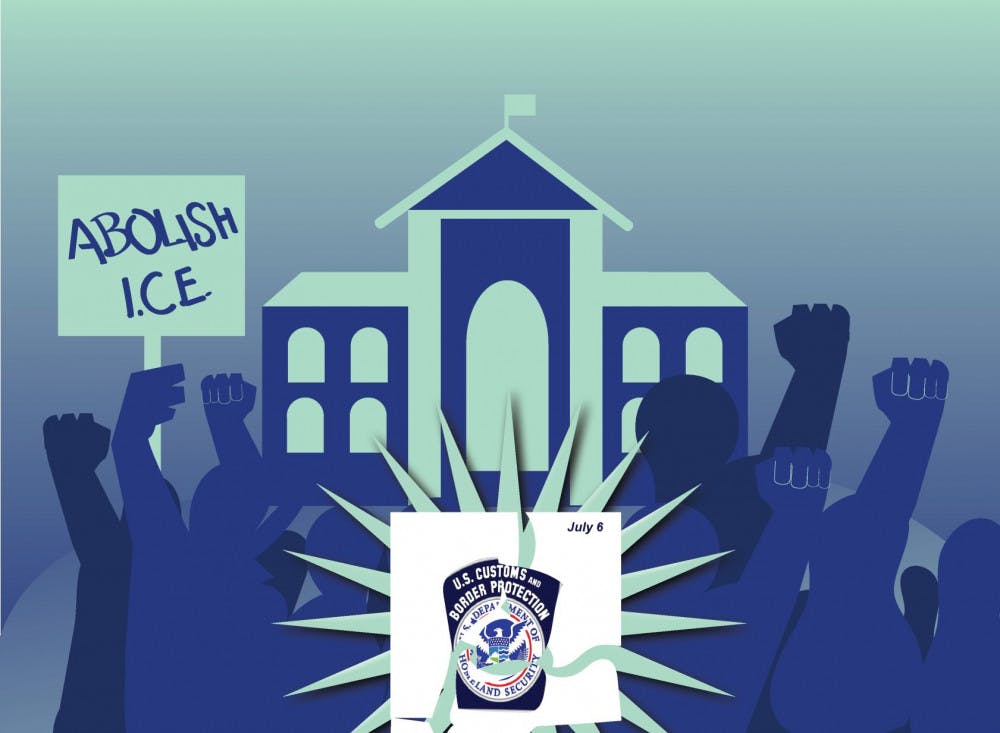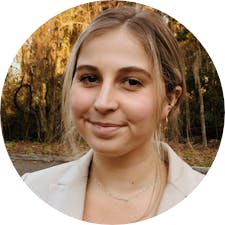
International students will be allowed to stay in the United States regardless of how many in-person classes they take, due to a sudden reversal of a U.S. Immigration and Customs Enforcement policy.
The policy would have required international students to leave the U.S. unless they took at least one course in person, an option some universities had already ruled out amid COVID-19 concerns.
In a statement on July 8, Harvard University’s president, Lawrence Bacow, called the new policy cruel and reckless, and said it was purposefully designed to pressure universities into returning to in-person instruction in the Fall, without regarding the ongoing COVID-19 pandemic.
The Trump administration rescinded the directive on Tuesday after being sued by Harvard and MIT. ICE has returned to its March 13 policy, waiving in-person class requirements for international students.
José Cabrera, a 20-year-old UF computer science sophomore, said he didn’t believe the news at first. He’s lived at a friend's house in Indianapolis during the pandemic because he could not return home in San Cristóbal, Venezuela. When he found out the policy was rescinded, he said it was like a huge weight lifted off of him and his family.
“Going back to my home country was not an option at all,” Cabrera said. “Partially because of flights, but also because it is very dangerous to go there right now, and the conditions are not really ideal for me to go there.”
Cabrera said although he was very concerned about the ruling, he was relieved by the efforts of students and professors to help international students. This included spreadsheets that were made to switch classes with U.S. students, petitions and professors creating courses that were within guidelines for international students to take in the Fall.
“I think all the efforts, but especially the professors' decision to make the course, were very noble and very brave to defy such a strict law that was so damaging for a community that is roughly 10 percent of UF’s population,” Cabrera said. “I didn’t have to use any of those resources, but I know that for people who were in more dire need, and it was a blessing, and it would have been a miracle.”
UF enrolls the highest number of international students in Florida, 6,881, who contribute $178.1 million to the university, according to the National Association of Foreign Student Advisers.
UF International Center Dean Leonardo A. Villalón said in a statement that UF had been advocating to policymakers for a change to the policy since it had been announced last week, and the university welcomes the new decision.
Cabrera said when most UF classes were shifted online, he went through and scanned for courses he could take in a hybrid setting. He got one introductory botany course, and was thankful that this was possible, as he explained not everyone was able to get these options.
He also said although he is relieved the ICE regulation was rescinded, there are still many international students who are in tough situations for the Fall, whether it’s how to get to the U.S, expenses or problems with visas and F1 forms.
“I think it’s very important to note that even though ICE backed out after all the outcry about international students being deported, which was a huge problem of course, and even though now this has “fixed my life” and many others, there is still a lot to be done.”
Melos Shtaloja said he’s not sure if he’s supposed to be happy about this decision. The 21-year-old architecture sophomore said there has been so much uncertainty and news about international student status that he doesn’t feel confident enough to really know what will happen.
“I’m afraid of them figuring out a loophole in which a lot of people could have trouble again,” Shtaloja said.
Shtaloja said when the ICE regulation came out, he and other architecture students went to their professors in the college of Design Construction Planning and immediately expressed their concerns. He said the professors told them they would have a class for one credit that abided within the regulations to make sure students could stay.
Shtaloja said although this gesture was extremely helpful, and the ICE policy reversal President Trump announced changes things, he still is struggling with what to do in the Fall. He is currently home in Kosovo, Eastern Europe, and said he wants to stay due to Florida’s recent surge in COVID-19 cases.
In addition to COVID-19, the expense of the flight to Florida and uncertainty of whether he would have to go home after Thanksgiving is concerning.
“I don’t even know if I would be able to go back even if I wanted to,” Shtaloja said. “There’s a lot of questions that we still have and they aren’t necessarily being answered, everything is a blur.”
Shtaloja said he was a little disappointed with UF’s response to everything happening, and that UF has no statement directly against the ICE regulation. He said although UF came out with statements on how they cared, he saw many universities speak out against the regulation like Harvard and MIT.
UF’s July 8 statement by Provost Joe Glover said UF believed there would be enough in-person coursework in the Fall schedule of courses to allow international students to maintain legal status in the U.S., and the university would work with students who had concerns about their schedule. The statement also said the university was committed to ensuring all students make appropriate academic progress in the year ahead, despite COVID-19 and other challenges.
Shtaloja also said he wished UF had mentioned International students more in the re-opening plan. However, he said UF and UFIC has been helpful, they just haven’t been able to update him as quickly as he hoped.
“I’m glad UF took measures to deal with ICE regulations but they didn’t necessarily attack these xenophobic regulations,” Shtaloja said. “We are the number one public institution in Florida and number seven in the nation, and UF not calling ICE out, I don't know. I expected a bit more from UF as an institution.”

Anna Wilder is a second-year journalism major and the criminal justice reporter. She's from Melbourne, Florida, and she enjoys being outdoors or playing the viola when she's not writing.





